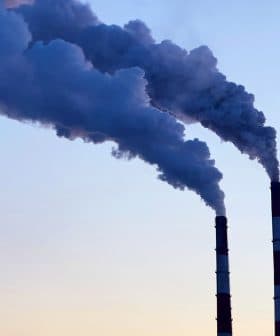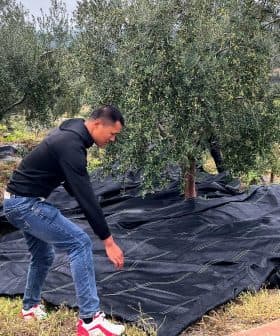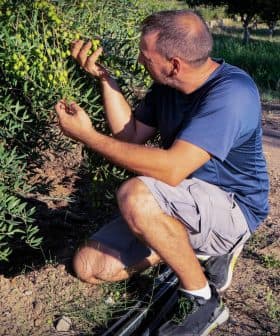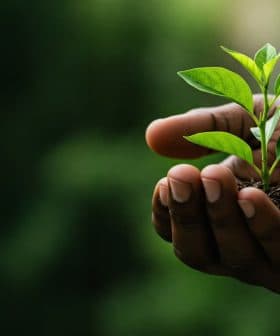How Climate Change Has Impacted the 2019 Harvest
Olive oil producers worldwide are facing challenges due to climate change, with erratic weather events causing shortages in major olive-producing countries like Italy and Greece. The European Union recommends adjusting farming operations and integrating new technologies to mitigate the impacts of climate change on olive growing operations globally.
Olive oil producers around the globe are feeling the effects of climate change. Though many countries experienced a rebound year in 2019, forecasts for continued extreme weather are foreboding for producers concerned about drought, hail, rain and sea-level rise and the issues they pose to olive-growing operations.
This has been a very dry growing season since we had little rain during winter and spring and soils are dry.
In 2018, Italy, Greece and other Southern European olive-oil-producing nations experienced erratic weather events linked to climate change. Summer droughts, late frosts and strong winds created shortages in olive production. Italy’s production was down 57 percent as a result.
A lack of rainfall this year created issues in Spain, where total olive oil production is expected to decrease by 44 percent.
Roman Rivera, managing director of Portugal’s ELAIA, said the dry growing season also hit Portugal.
“This has been a very dry growing season since we had little rain during winter and spring and soils are dry. In areas where irrigation is available it has been possible to irrigate the olive groves,” he said.
Rivera added that despite the dry growing season, Portuguese producers will do alright, though not as well as other European regions.
“The Portuguese growing season is going better than last year, although not as good as the news we hear from Italy or Greece,” Rivera said in September. “In our groves in Spain we are going to have a good crop, even though Spain is not expecting a good campaign due to lack of rain and last year’s great harvest.”
Mariana Matos, secretary-general of Casa do Azeite, Portugal’s olive oil trade association added that the olive tree is built to withstand drought, which accounts for a harvest that will still meet, and perhaps, exceed expectations.
But the drought isn’t the only obstacle climate change throws in the way of olive oil producers. In a white paper on the effect of climate change on European agriculture, the European Union (EU) states the evidence of climate change is “solid and real.” It changes rainfall, temperature fluctuations throughout the year, storms, floods and heat waves.
Tedi Chiavalon of Croatia’s OPG Chiavalon, said the growing season was “challenging” primarily due to high temperatures during the blooming period.
“Some cultivars on some position suffered a lot so, in our region, we are expecting 30 percent fewer olives than last year,” Chiavalon said.
Temperature fluctuations aren’t new to Croatian producers, Chiavalon said, but they seem more frequent because of climate change, and they can be devastating.
“We had huge colds in winter so our region lost great parts of its production capacities,” he said.
Temperatures have risen 1.4°C since pre-industrial times, according to the EU, which could reduce rainfall, spur more dramatic weather events, and stress aquifers, irrigation systems and existing water supplies.
As a result, the EU recommends olive growers and other agricultural producers adjust the timing of their farming operations.
Some growers admitted to moving harvest times forward or back a week or more and, in Egypt, blooming was delayed by 15 days from a cold winter, and a hot summer caused olives to ripen too fast, according to Roba Ashraf of Wadi Food.
The EU also suggests adapting crops with biotechnology, integrating pest management practices and improving soil management — all costly mitigation measures for growers already operating on low margins.
As the European season winds down, the impacts of climate change on olive growing are being felt in the Southern Hemisphere. Gabriel Guardia, manager at Argentina’s Olivícola Laur, said climate change has “definitely” affected operations in the country and in Mendoza, where Laur’s operations are based.
“The drought, the lack of precipitation have affected the cultivars in our country,” Guardia said. “The quality is strongly affected by hail and the lack of rain and precipitation that Mendoza suffers. While hail affects the quality itself, the lack of precipitation does not allow the correct growth of the olives.”
Though reversing the effects of climate change will take a global effort, luckily, the EU suggests agricultural producers, including olive oil producers, can be part of the solution.
“Agriculture can also help to provide solutions to the overall climate change problem by reducing emissions,” the European Commission wrote recently, “and by sequestering carbon while not threatening viable food production.”









